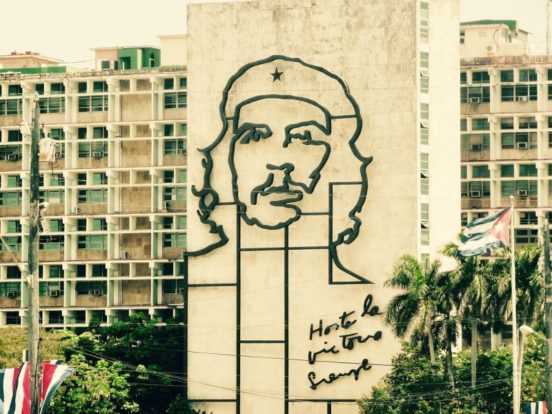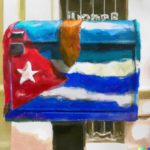Letztes Update: 10. June 2024
Ché’s iconic sentence – and why the translation is not that easy!
“Hasta la victoria Siempre” is something most of us have heard, whether in Cuba or elsewhere in the world. It is probably the most famous quote by Ernesto “Ché” Guevara and comes from the letter he wrote to Fidel Castro in 1965 before he went to the Congo and then to Bolivia to advance the revolution there. In that farewell letter, he wrote the famous “Hasta la victoria Siempre, always until victory!” as a parting message to Fidel.
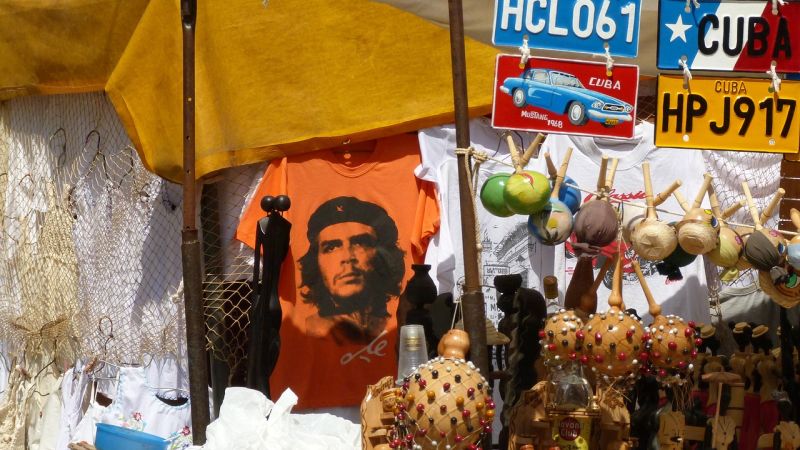
Farewell letter to Fidel
While Fidel Castro and the other revolutionaries set about managing the island and transforming it into a socialist state, Ché Guevara was drawn to the wider world. He saw himself more as a revolutionary than a civil servant. This is detailed in his farewell letter to Fidel Castro, in which he severs all formal ties with Cuba to dedicate himself to advancing the revolution in other countries, with the well-known, tragic outcome.
You can find the exact wording of the translation of the letter at History of Cuba, scans of the original letter you can find at the BBC website.
The letter then ends with the words:
“Always until victory! Fatherland or death!
It embraces you with all its revolutionary devotion, Ché”
The correct translation of Hasta la victoria Siempre
“Hasta la victoria Siempre” is usually translated as “always until victory.” My wife (a Cuban) confirmed to me that the phrasing in Spanish sounds a bit odd, perhaps old-fashioned, something like “Until victory, always!” However, since the phrase is used so frequently, no one really thinks about it.
But the language geeks of Leo.org have found other variations of this translation, which could also be possible:
- Ché might have omitted the word “lucharemos” (we will fight) before the phrase, a typical stylistic phenomenon. Then the translation would be: “We will always fight” or “We will never stop fighting until we win.”
- It’s also possible that it means: forever, until victory. With the added “fight” above, it would evoke perseverance: “we will fight until we win.”
- And then there’s the possibility of a comma error, as mentioned below.
Most likely, there is a comma error in the original!
If you look at the original text, you notice that Siempre is clearly capitalized, this makes no sense in the middle of a sentence. So, if we assume that there is actually an end before Siempre, then the whole thing would read: “Hasta la victoria. Siempre Patria o Muerte”, that is: “[we fight] until victory, always fatherland or death”.
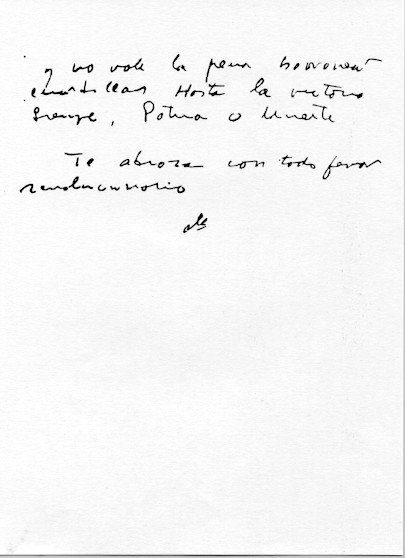
This makes the whole sentence make a lot more sense. In the book “Evocación” by Aleida March, the wife of Ché, she also describes that there was in fact a comma error in the quote and that Ché never forgot the error he made.
A completely different interpretation, which goes in the same direction, is that Fidel simply read out the sentence incorrectly in his famous speech and there is no comma or period because the page is just over. In the letter you can see that the “S” in siempre is capitalized.
Hasta Siempre, Commandante, one of the hits of the revolution
In 1965 Carlos Puebla wrote one of the most famous songs of the Cuban Revolution, “Hasta Siempre, Commandante”, a fictitious answer to Ché’s letter. For those who want to practice a little Spanish: here you can find the lyrics of the song!
Places where the sentence appears
Of course, there are also many places in the context of the Ché Guevara cult where the Hasta Siempre quotation appears, usually going along with his portrait. The most famous ones are certainly:
- Plaza de la Revolución, Havana: one of the most popular photo motifs in Cuba is certainly the large Ché portrait in the Plaza de la Revolución. Which is found opposite the statue of José Martí. Under this portrait is the sentence, Hasta la Victoria Siempre
- Ché Guevara Mausoleum, Santa Clara: “Hasta la victoria Siempre” is also located on the base of the Ché statue.
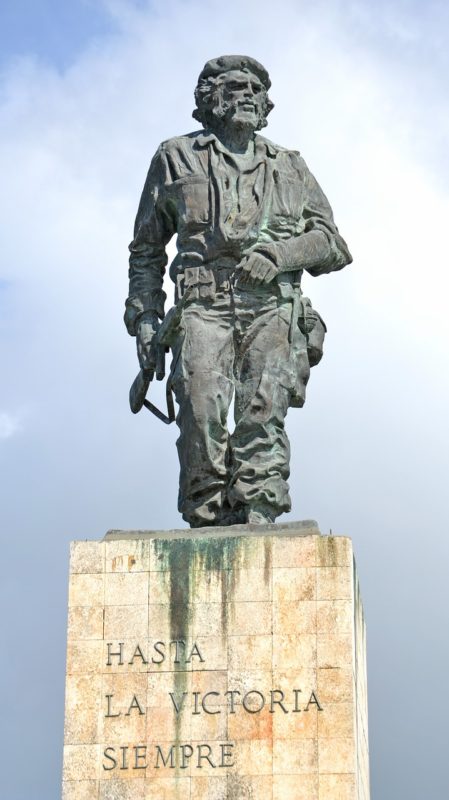
And here you can find a Pinterest board with a few pictures on the topic!
Why “Ché” at all?
Actually, Ché is really named Ernesto Guevara, but everyone called him “Ché”, because as an Argentinean he always ended his sentences with “ché”, a kind of Argentine “Dude”! The Cubans liked that, and therefore they simply called him Ché!

If you want to know more about “Ché” Guevaras live, here is an Italian documentary about him (in English):
Saludos to you all,
Dietmar
